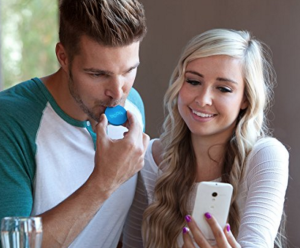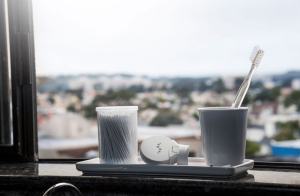Feds: No Proof That ‘Breathometer’ Blood Alcohol Content Test Actually Works
The Breathometer promised to be a pocket-sized law-enforcement-grade device that could be used to accurately measure blood alcohol levels to determine if the user is sober enough to drive. It’s a good enough idea that it won over the panel on Shark Tank, but according to federal regulators, the only thing you can definitely say about this device is that it does fit in your pocket.
The company ran a successful crowdfunding campaign on Indiegogo, and received $1 million from the wealthy investors on “Shark Tank,” selling the device as a compact way to make sure that you’re able to drive. The first version used a headphone jack, and a later generation used Bluetooth.
Sounds like a useful thing to have during a night out… if it were proven to work. The Federal Trade Commission opened an investigation of the product’s advertising, and released the following findings today:

An actual promo picture.
The original Breathometer is no longer on the market, and the FTC has ordered the company to contact customers and offer them a full refund. The app that powers the device has also been disabled, making the devices useless.
 The company is still around. It pivoted, as they say in the business world, to selling a related product that doesn’t involve drunk people. The new generation of the Breathometer analyzes your breath for volatile sulphur compounds (VSCs), which can be an indicator of bad oral bacteria and otherwise poor health in your mouth. In other words: they created a device that tells you whether your breath is bad.
The company is still around. It pivoted, as they say in the business world, to selling a related product that doesn’t involve drunk people. The new generation of the Breathometer analyzes your breath for volatile sulphur compounds (VSCs), which can be an indicator of bad oral bacteria and otherwise poor health in your mouth. In other words: they created a device that tells you whether your breath is bad.
That may sound like a wacky device to make part of a smartphone, and not something that most consumers would be interested in. You may be right, which is why Breathometer is working with Philips to make the technology part of the Sonicare toothbrush line.
That’s great for them. Just don’t call something “scientifically proven” when it isn’t.
Want more consumer news? Visit our parent organization, Consumer Reports, for the latest on scams, recalls, and other consumer issues.

